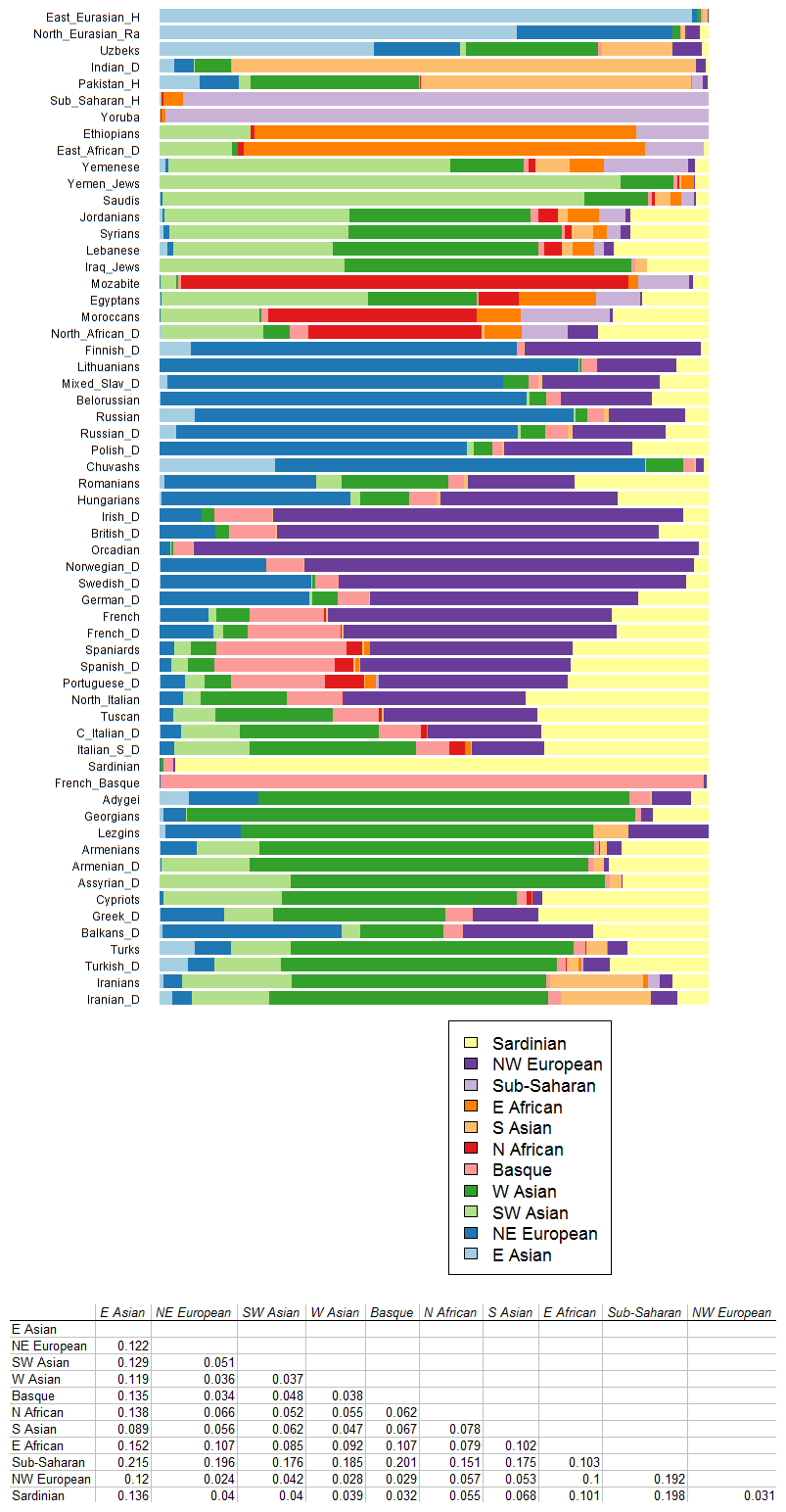Most of this words you have listed (not all ) are exclusive to Sorani and Gorani-Leki Kurdish.
About the Ancestors of Kurds. What I am very sure about is, that the Alans(Sarmatians), Hurro-Urartains, Hethits, Scytho-Medians and Cimmerians played the biggest roles.
Alan is a big well known Kurdish tribe. Alan is also a very popular kurdish Sure and last name. Even a big Kurdish Region in Iranian Kurdistan is named Erdalan. H/Erd means Ground, Earth and Alan means The Alan. Erdalan = the Land of Alans. They did found Stone tablets in a kurdish Region of Turkish Kurdistan which are similar to those found in Cimmeria and some places of Central Asia what makes me assume that they are Cimmerian.
Some historians list Serbs into Sarmatians and even into Alans, but I am not sure about that...Seneca's Serians lived among Sarmatians but were not the same...
Ossetians are thought to descend of Alans but they are dominantly haplogroup G...though in one of tested towns they have also significant haplogroup I...
Serbi/Serboi lived in Asian Sarmatia just north of Alans, which may explain significant haplogroup I in north most town of Ossetians
The Scytho-Median (The Scythians who moved into Media) traces are obvious among Kurd. You can find only in Regions were the Kurds make today the majority traces of Sakas/Scythians. The Capital of Medic Scythia was Saggez which comes from the Word Saka. In Kurdish the City is called Sêwî what is a form of Gold in Kurdish. Scythians were known for being very Gold interested.
regarding tribal name Scythians, word "skitati' in serbian means to wonder around
while Scythians are known as Saka, 'sakaliba' is word that was used by Arabs for Slavic people in medieval period
"wondering around"is about nomad lifestyle...Tacitus remark about Vistula Veneti indicates that ancient historians from Rome and Greece classified tribes of north Europe into Germanic and Sarmatians by the lifestyle... the tribes who lived settled in houses were Germanic and the ones who lived as nomads were classified as Sarmatians - at least Tacitus used such explanation when he classified Vistula Veneti in Germanic tribes...
Jordanes says that Slavs are from race of Veneti
Veneti also lived in Paphlagonia, but were kicked out of there after joint expedition with related Cimmerians (Paplagonians are in Hebrew world sons of Riphat who is son of Gomer)
Slavs are knows as Wends by Germanic people
wandelen (dutch)= wonder around, move in different directions
related is word Wind in Germanic languages ...as wind is moving in different directions
Greek mythology often hides legends of origin of tribes..
Venti is italian name for Greek wind gods (Anemoi)... .
key wind gods are: Boreas - the north wind and bringer of cold winter air, Notus - the south wind and bringer of the storms of late summer and autumn, Zephyrus - the west wind and bringer of light spring and early summer breezes; Eurus - the east wind.. son of Zephyrus was Carpus
I map Eurus to Russians, Zephyrus to Serbs, Carpus to Croats, Boreas to Hyperboreans... Notus I do not know how to map to a tribal name
regarding word "Sêwî "
gold = zlato in Slavic languages
but word for silver is "srebro" which may be remotely similar to "Sêwî "
Scythians are based on ancient DNA thought to be dominantly R1a haplogroup
I believe Cimmerians and Veneti were dominantly I2a
east and west Slavs are dominantly R1a with significant I2a2
south Slavs are dominant I2a2 with significant R1a
There was also a Scythian King in North Iraq. The only People who might be descend of those People can only be Kurds. I think Iranian(Scytho-Medians, Alans, Cimmerians), Hethit and Caucasian (Hurro-Urartaen) groups played the biggest roles in the Kurdish Case.
yes, I think all of them...
and some (or all?) of them are same people
Sarmatians are Medians and in Greek legends origin from group of Scythians marrying group of Amazones...thus Sarmatians and perhaps also Sarmatian Alans would be Scytho-Medians in origin
and I was wondering whether Sarmatians are same as Cimmerians
now I think Scythians were R1a, Cimmerians were I2a and Sarmatians were R1a, I2a2 and G
Alans were probably haplogroup G
Hittite have primary God whose name (Tarhun) and description maps fairly well to Slavic primary God (Perun)..Son of Tarhun is Sarruma (mountain God) who perhaps could be origin for tribal name Sarmatians
Tarhun (also known as Teshub) was carried in wagon that was using two sacred bulls Seri and Hurri
I map these to tribal names Serians and Hurians
You mean the People of Germian.
probably... I found word Garmiani on internet when reading about Sorani language


